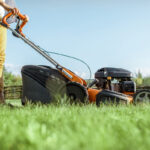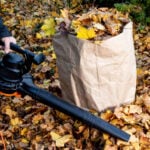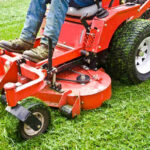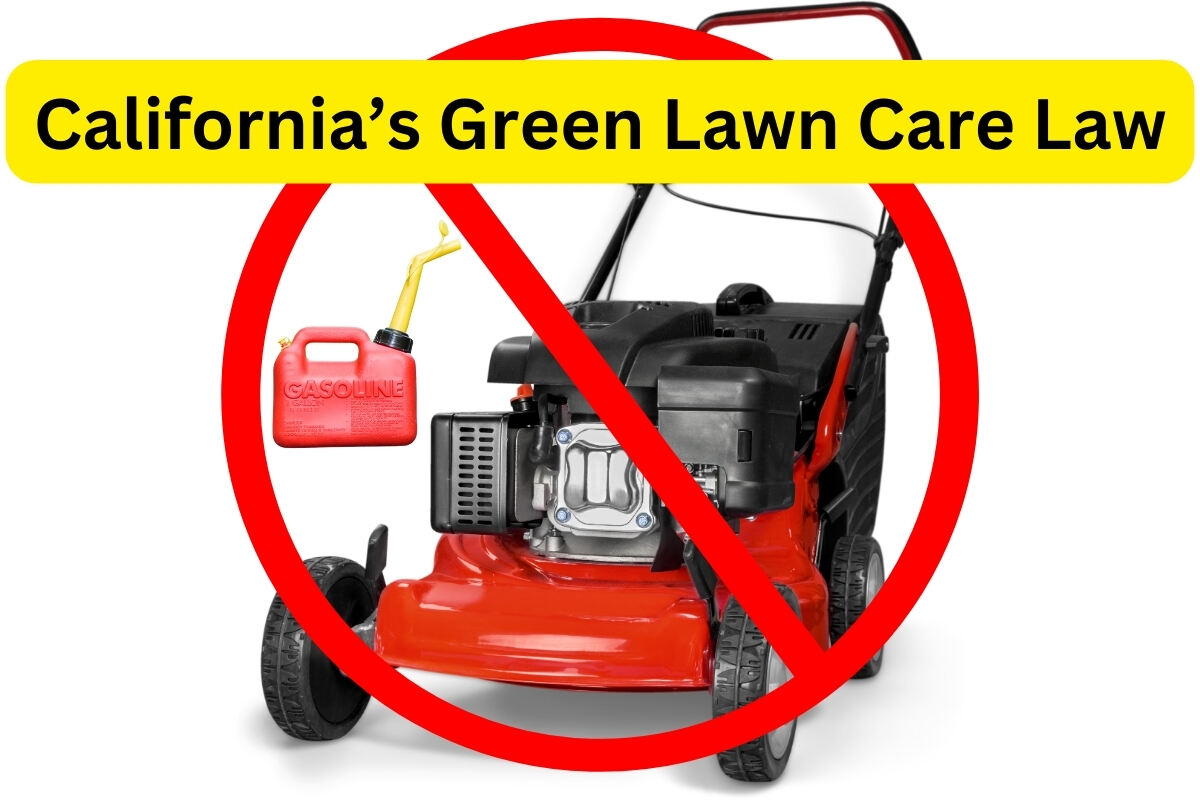
California’s law banning the sale of new gas-powered lawn care equipment affects homeowners, lawn care service providers, and the makers of lawn mowers, leaf blowers, string trimmers, and other landscaping equipment.
The law, which took effect Jan. 1, 2024, aims to protect the environment by reducing pollution – such as the harmful emissions of gas mowers, weed whackers, and leaf blowers – and the loud noise from gas-powered leaf blowers that can lead to hearing loss. However, many Californians worry about how the law will affect their lawn care routines and businesses.
Other states, cities, and counties also have since put in place or plan to enact similar laws banning or limiting gas-powered equipment, though the details and goals vary from place to place. (See: How Other State Laws Compare below.)
Let’s look at the impacts of California’s law – and similar legislation across the country – on homeowners, lawn care pros, and manufacturers.
What California’s Green Lawn Care Law Entails
California’s gas-powered equipment ban is part of Assembly Bill 1346, approved by Governor Gavin Newsom in October 2021. The bill requires the California Air Resource Board (CARB) to regulate emissions from small off-road engines (SORE). SORE are gasoline engines with power equal to or less than 19 kilowatts or 25 horsepower, which includes many lawn care tools.
To meet their goals, CARB approved a measure requiring newly manufactured lawn care and other equipment with small off road engines to be zero-emission. These standards will be enforced in two waves:
- In 2024, new models of most SOREs will need to be zero-emission. Generators and large pressure washers will have stricter standards to reduce emissions by 40% to 90%.
- In 2028, new models of generators and large pressure washers also need to be zero-emission.
These regulations mean Californians no longer can purchase new gas-powered lawn equipment manufactured after Dec. 31, 2023. To know whether the ban applies to specific lawn care equipment, look for the model year. It should be from 2023 or earlier.
Though the term “ban” may seem intimidating, the law doesn’t prohibit using gas-powered equipment. Businesses and homeowners can continue to use gas-powered equipment in their possession or purchase it second-hand. Manufacturers and vendors can sell out their remaining stock of gas-powered equipment as long as it was produced before 2024.
What Equipment Does the New Law Cover?
Examples of SOREs affected by Assembly Bill 1346 include:
- Lawn mowers
- Leaf blowers
- Chainsaws with engines less than 45 cubic centimeters
- Hedge trimmers
- String trimmers or weed whackers
- Log splitters
- Pressure washers
- Utility and golf carts
- Portable generators
Some SOREs and other types of equipment are exempt from CARB’s current regulations, such as:
- Air compressors
- Blade-capable brush cutters or clearing saws with engines 40 cubic centimeters or larger
- Chainsaws 45 with engines cubic centimeters or larger
- Diesel-powered generators, pressure washers, pumps, and riding mowers
- Stationary equipment
- Equipment with large spark-ignition engines over 1 liter
As you can see, Assembly Bill 1346 applies to more than just landscaping equipment. While the law doesn’t solely impact the lawn care industry, it will affect many of the standard mowers, trimmers, and leaf blowers homeowners and professionals use.
Why the Law Exists
Two significant concerns fueled this gas equipment ban: air quality and overall health.
California cities hold places on many “most polluted cities” lists. While smog-forming emissions from light-duty passenger cars drop, SORE emissions in California are expected to grow and already exceed those of cars. One hour of lawn mower use is equivalent to driving 300 miles, and one hour of leaf blower use is equal to driving 1,100 miles.
Pollutants from SOREs cause many adverse health effects, such as cardiovascular disease, asthma, and premature death. The noise from lawn mowers and leaf blowers also can cause hearing loss, especially when used without proper ear protection.
Unlike gas-powered engines, electric lawn care equipment doesn’t produce emissions or excessive noise. As a result, corded electric or battery-powered lawn mowers, leaf blowers, and weed whackers are much healthier for you and the environment.
How the Law Changes Lawn Care
Though the gas-powered equipment ban affects all Californians, some people are more heavily impacted than others. Let’s break down the effect on specific groups, so you know where you stand.
How the Law Affects Homeowners
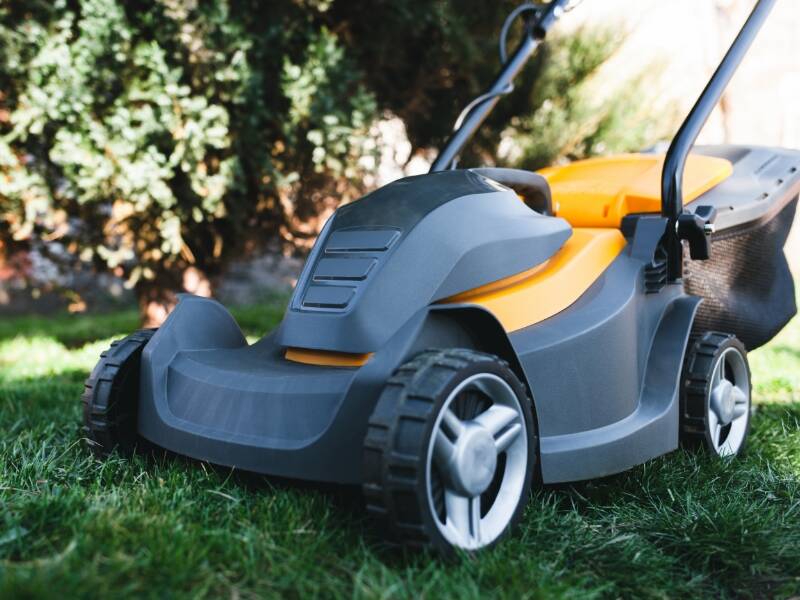
Assembly Bill 1346 primarily affects homeowners who want to purchase new gas-powered tools. You can keep any gas-powered landscaping equipment you have and purchase gas tools second-hand.
If you need new equipment, you must choose an electric option to meet the new zero-emission standards. There will be limited stock of gas-powered models from 2023 and earlier, but demand may be high, and supplies will eventually run out.
Many homeowners have already taken the plunge, as more than half of household landscaping equipment in California is electric. Many homeowners appreciate how quiet electric equipment is compared to gas and the lack of fumes. While electric equipment tends to cost a bit more, it has lower maintenance costs in the long run.
Though lawn equipment options will be more limited than before, homeowners will still have many choices to meet their landscaping needs. You can choose from corded options for small yards or cordless, battery-powered tools for easy mobility. Below are some recommendations for various electric landscaping tools:
- Lawn mowers: The best electric lawn mower overall, according to our research, is the battery-powered Snapper XD 82-Volt MAX, but the Greenworks MO40B00 has the best value. Homeowners on a budget should consider the Sun Joe MJ401E. The corded model BLACK+DECKER MM2000 should get the job done if you have a small yard.
- Robot lawn mowers: These are all battery-powered and they’re super quiet and perfect for small lawns. Some people mow their lawns while they sleep with their robot mowers. We liked the Mammotion Luba AWD 5000 in our ranking of the best robot lawn mowers, but other options include the Robomow RK4000 and Husqvarna’s Automower 430X.
- Leaf blowers: There are several electric leaf blower options to choose from, according to our ranking. The best handheld options are the cordless Ego Power+ LB7654 and the corded Worx WG521. The Ego Power+ LBPX8004-2 is a good option for backpack blower fans. If you want to collect the leaves, consider the Ryobi RY404150 leaf vacuum.
Oh, and check out our review of the Enhulk 930 cordless leaf blower. We really liked this one after we put it through its paces with leaves and pine needles.
- String trimmers: The best electric string trimmers come in corded and cordless varieties. We recommend the corded BLACK+DECKER BESTA510 6.5 amp string trimmer or the cordless Earthwise LST02010 20V. The best bang for your buck is likely the Greenworks 21302 40V string trimmer.
- Hedge trimmers: Though the CRAFTSMAN CMEHTS822 is our overall best hedge trimmer pick, the Greenworks 21302 is a great value choice. Those on a budget should consider the Greenworks Corded Hedge Trimmer.
- Chainsaws: The best electric chainsaws are the Worx WG304.1 15 Amp 18” Electric Chainsaw and the BLACK+DECKER CS1518. But if you need something for heavy-duty cutting, the Husqvarna 967256101 414EL is a powerful option. The best budget choice is the CRAFTSMAN CMECS600.
- Pressure washers: For the best pressure washer, the Suyncll Pressure Washer 3800 PSI & 2.8 GPM cleans up the competition due to its power. However, Sun Joe SPX3000 2030 PSI 1.76 GPM is a customer favorite. If you hate unwieldy equipment, the Westinghouse 2030 PSI & 1.76 GPM is versatile and easy to move around.
What if you hire a lawn care professional instead? While you won’t have to pay for electric equipment yourself, lawn care pros could pass on additional costs to their customers due to this law. A lawn care company already using electric equipment shouldn’t be affected, but businesses with gas-powered tools will need to replace their equipment eventually.
How the Law Affects Lawn Care Pros
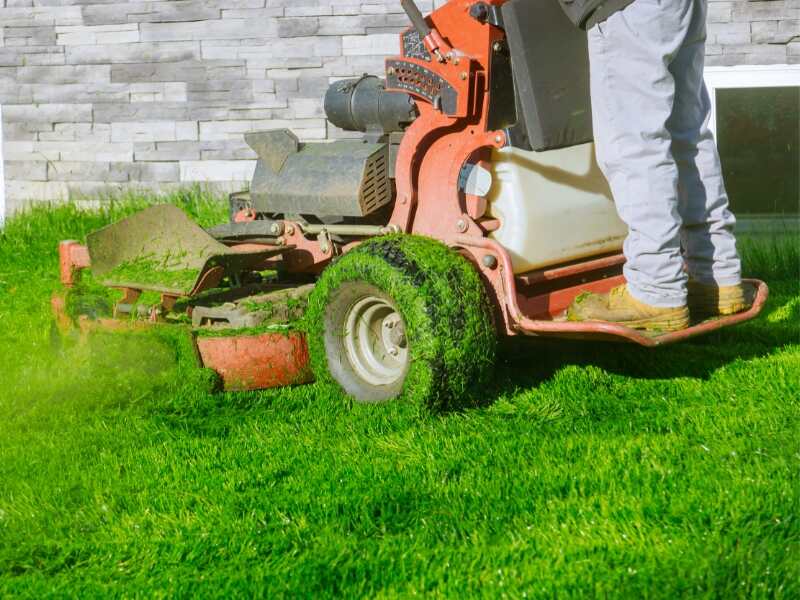
Electric lawn care equipment reduces two occupational hazards: harmful emissions and excessive noise. While everyone is susceptible to these health threats, lawn care pros and landscapers deal with them much more. The switch to electric tools should positively affect a lawn care professional’s health in the long run.
However, many lawn care pros fear electric equipment technology hasn’t advanced enough to meet their needs. While a battery life of an hour or two is plenty for most homeowners, landscapers must run their equipment all day. They’ll need to recharge their batteries frequently or buy multiple batteries to get them through the day. Electric equipment also isn’t as powerful.
The upfront cost also is discouraging to small-business owners. They may need to pass on these new electrical equipment and spare battery expenses to their customers. Though California Senate Bill 170 set aside $27 million to help landscaping businesses purchase equipment through the CORE program, the voucher funds were exhausted by October 2023.
As a result of these issues, groups like The National Association of Landscape Professionals opposed Assembly Bill 1346.
To counteract the hesitancy of many landscapers, CARB runs a Zero-Emission Equipment Roadshow. This program allows organizations to loan equipment so they can try before they buy.
How the Law Affects Makers of Lawn Care Equipment
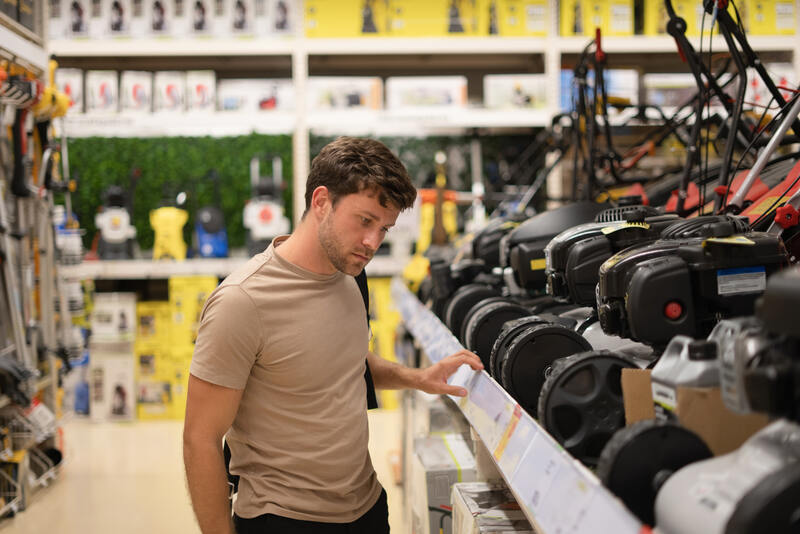
Manufacturers won’t be able to sell gas models produced in 2024 and beyond in California, though they can sell out their existing stock. Electrical equipment manufacturers will inevitably see a rise in demand and sales, while gas-powered equipment sales will drop off once the old models run out.
To cater to the California market, companies would need to pivot toward electrical equipment production to make up for the loss of sales in the state. Many companies have developed electrical or battery-powered equipment lines to meet growing demand.
Manufacturers, dealers, and retailers now are adapting to the new law, having made up much of the opposition to California’s Green Lawn Care Law. The Outdoor Power Equipment Institute listed several concerns about the bill, such as insufficient data to support the policy shift and a short implementation timeline.
Incentives, Funding, and Rebates
Investing in new electric equipment can be expensive for homeowners and businesses alike. Your local air district may provide funding or rebates to help cover costs and encourage more people to switch to zero-emission landscaping equipment.
CARB compiled a list of districts with professional and residential incentive programs so you can find one that applies to you. Keep in mind that these programs may change over time, so check your local air district’s website for updated information.
How Other State Laws Compare
Several other states have proposed bans or restrictions on gas-powered equipment.
- In New York, Assembly Bill A705 will prohibit gasoline leaf blower and lawn mower sales by 2025. Senate Bill S7462A states that sales of lawn care equipment (including lawn mowers, lawn edgers, leaf blowers, leaf vacuums, mulchers, and chippers) sold in the state need to be zero-emission by 2027.
- The Minnesota House proposed a bill similar to California’s that bans the sale of gas-powered yard equipment by 2025.
- Washington, D.C., banned the sale and use of gas-powered leaf blowers on January 1, 2022, and violators can be fined up to $500.
However, other states have taken the opposite approach.
- Texas stopped gas-powered equipment bans with Senate Bill 1017. The bill prohibits regulations that limit access or use of specific fuel sources.
- Georgia’s Landscape Equipment and Agricultural Fairness (LEAF) Act prohibits governments from regulating gas-powered equipment differently than equipment with other fuel sources.
Haven’t Adapted to the New Law? Maybe Hire a Pro
In this article, we’ve covered the content and scope of California’s new law so affected parties can be informed and prepared. If you have further questions, check out our FAQ on California’s Green Lawn Care Law.
You won’t have to research lawn equipment laws if you hire a local LawnStarter lawn care pro. They’ll keep up with the news and regulations while you spend more time with your family or friends.
Main Photo Credit: Billion Photos / Canva Pro / License, overlay created using Canva Pro

